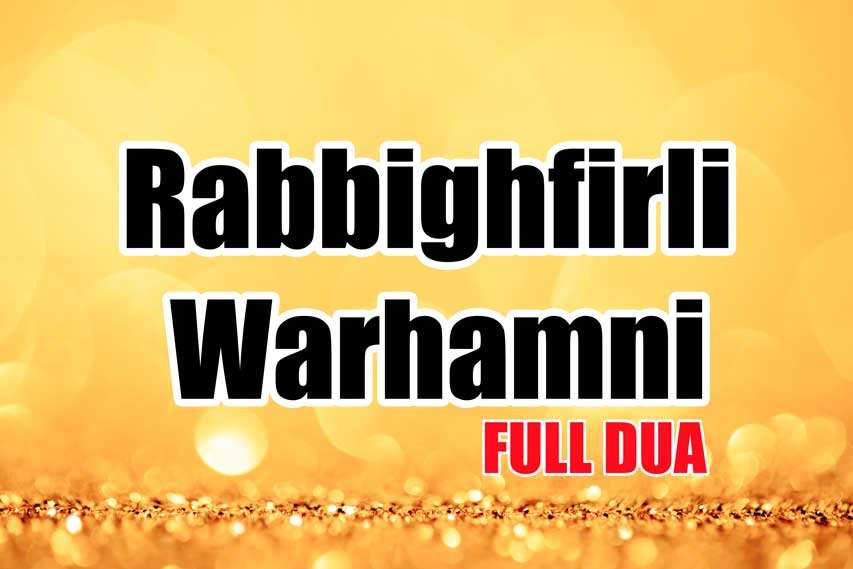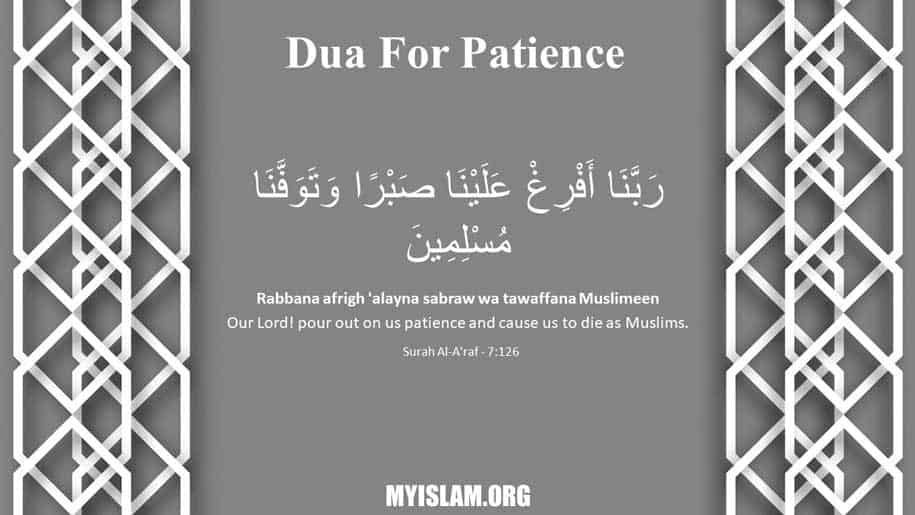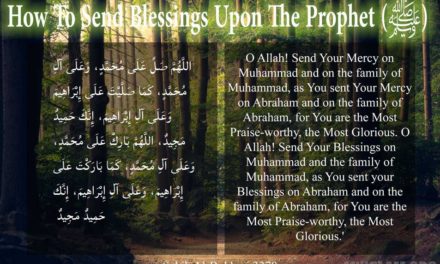There is a beautiful and comprehensive dua, filled with hope that the Prophet (ﷺ) used to recite between the two prostrations (sujood).
This dua asks of Allah for courage and strength, for wealth and good provision, and for his guidance and blessings.
In Jami At Tirmidhi Hadith 284, it was narrated by Ibn Abbas: “Between the two prostrations, the Prophet would say: Allahummaghfirli, warhamni, wajburni, wahdini, warzuqni.
Allahummaghfirli, warhamni full dua in Arabic:
In arabic text the Allahummaghfirli, warhamni is written,
Allahummaghfirli Warhamni Meaning
The allahummaghfirli warhamni dua translates to, “O Allah! Pardon me, have mercy on me, help me, guide me, and grant me sustenance.”
Rabbighfirli meaning “O Lord, Forgive me”
Warhamni meaning “Bless me with mercy”
Wajburni meaning “Rectify me”
wahdini meaning “Guide me”
Warzuqni meaning “Give me my Sustenance”
Another Hadith About Dua In Prostration:
It was narrated from Hudhaifah that the Prophet (ﷺ) used to say between the two prostrations:
“Rabbighfir li, Rabbighfir li (O Lord forgive me, O Lord forgive me).”
Grade: Sahih (Darussalam)
English reference : Vol. 1, Book 5, Hadith 897
The same dua was also mentioned in Sahih hadith of Sunan An Nasa’i 1145:
A man from (the tribe of) ‘Abs narrated from Hudhaifah that: He came to the Prophet (ﷺ) and stood by his side, and he said: “Allahu Akbar Dhul-malakut wal-jabarut wal-kibriya’ wal ‘azamah (Allah is Most Great, the One Who has all sovereignty, power, magnificence, and might.)” Then he recited Al-Baqarah, then he bowed, and his bowing lasted almost as long as his standing, and he said when bowing: ‘Subahana Rabbial-‘azim, Subhana Rabbial-‘azim (Glory be to my Lord Almighty, Glory be to my Lord Almighty).” When he raised his head he said: “Li Rabbial-hamd, Li Rabbial-hamd (To my Lord be praise, to my Lord be praise).” And when he prostrated he said: “Subahana Rabbial-A’la, Subahna Rabbial-A’la (Glory be to my Lord Most High, glory be to my Lord Most High).” And between the two prostrations he would say: “Rabbighfirli, Rabbighfirli (Lord forgive me, Lord forgive me).”
Adding onto the Dua
There are variations where people have added on to this dua, this is acceptable and recommended or virtuous behavior.
Rabbighfirli warhamni wajburni warfa’kni warzuqni wahdini wa’afini. The addition, waafini asks Allah to Strengthen me or grant me well being.
There is also a variation of the Rabbighfirli dua which asks Allah to forgive our parents, ourselves, and the entire Ummah.
Allahummaighfirli (O, Allah Forgive me) with the addition of waliwalidayya (and my parents).
Conclusion
I too am guilty of not reciting this in-between sujood. In between the prostration I would hear whispers of people reciting something but never learned or was taught what was being said.
My pride as an adult stifled me from asking out of embarrassment. This was my mistake and I hope you don’t make the same. Although missing to recite this dua does not invalidate your salat I missed out on many, many, many years of an easy reward because of my ignorance. It is a simple act and you’re already praying so why not say one of these two duas, we can only benefit from their recitation:
(1) Rabbighfirli
(2) Allahummaghfirli, warhamni, wajburni, wahdini, warzuqni.






Jazzakallah khairan may God bless
jazakallah khair for reading.
I am trying to learn Arabic and at the same time trying to understanding while saying these words.
Rabbigh’ firli – (My) Lord pardon me
warhamni – have (Your) Mercy on me
wajburni -??
warfa’ni – raise my ranks(status)
warzuqni – bless me
wahdiinii – guide me
wa’aafiinii – forgive me
wa’fu ‘annii – forgive me
Google translate is not helping me much on the meaning of wajburni. Please help. Thank you
Wajburni means RECTIFY ME
Warzuqhni. Means give me sustenance
what does wa afini mean?